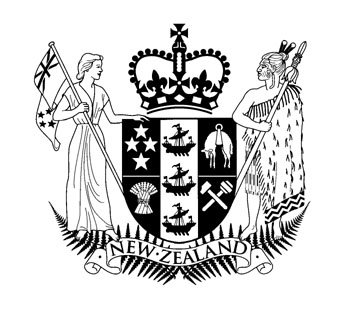
IN-CONFIDENCE
Social Workers Complaints and Disciplinary Tribunal
Chairperson and Deputy Chairperson Positions
The Tribunal
The Social Workers Complaints and Disciplinary Tribunal (the Tribunal) is a
legislative entity established under section 114 of the Social Workers
Registration Act 2003 (the Act). The Tribunal is made up of at least 8 members
as prescribed by section 116 of the Act.
Appointment The positions of Chairperson and Deputy Chairperson are appointed by the
Minister of Social Development and Employment. Appointments are for a term of
up to three years with all members eligible for reappointment.
Function
The Tribunal’s functions are set out in section 115 of the Act, and these
functions are:
•
To exercise the disciplinary powers over registered social workers
conferred by the Act; and
•
Any other functions conferred or imposed on it by or under the Act or
any other enactment.
Specific Functions of the Chairperson/Deputy Chairperson
The Chairperson is required to provide the following specific functions:
• Preside over hearings and meetings of the Tribunal;
• Ensure the rules of natural justice are adhered to in all proceedings before
the Tribunal;
• Assist in the regulation of the Tribunal’s procedure, prescribe or approve
forms for the purposes of hearings, and assist in drafting any rules of
procedure (practice notes) to be published;
• Draft and sign any decisions, minutes, etc. on behalf of the Tribunal;
• Make decisions on behalf of the Tribunal as is permitted by statutory
limitation;
• Work with the Hearing Officer, the parties, and other tribunal members to
establish timetables and progress matters to conclusion as expeditiously
as possible.
IN-CONFIDENCE
The Deputy Chairperson of the Tribunal has and may perform and exercise all
the functions, duties, and powers of its Chairperson if the Chairperson becomes
incapable of acting as chairperson because of illness, absence, or any other
reason or there is a vacancy in the office of Chairperson.
Qualifications
•
LLB;
•
Minimum 7 year’s practice in the legal field.
Knowledge, Skills and Experience
•
Knowledge and experience of matters likely to come before the
Tribunal;
•
Effective leadership skills;
•
A working knowledge of Tribunals or courts, and regulatory principles
and practice;
•
Effective time management;
•
A knowledge of New Zealand Legal Systems;
•
Understanding of, and a commitment to, the status of Māori as tangata
whenua, and it is desirable for them to have established networks with
iwi, hapū and Māori organisations;
•
Effective relationship management skills;
•
Experience in chairing meetings;
•
Ability to lead discussions and hearings and to guide decision making
processes, and to work collaboratively.
Personal Skills/Characteristics
•
Inclusive approach to group discussions and decision making;
•
Possesses strong written and verbal communication skills;
•
Good delegation skills;
•
Excellent organisational skills;
•
Sufficient time to commit to the additional responsibility of the role and
ability to be flexible with time;
•
Confident in communicating with a range of people from across
society;
•
Excellent at maintaining and managing professional relationships with
a range of people.
Workload
Members are required to make themselves available to hear and consider at
least half of the hearings he or she is asked to preside over. It is accepted that
members will not always be able to attend hearings, but a minimum
commitment to the Tribunal is expected.
Members will be required to review all material provided to them before each
hearing, attend the hearing, and then assist in drafting and/or review of the
relevant decisions.
IN-CONFIDENCE
Location Hearings are held in locations across New Zealand, depending on where the
appellant lives.
Remuneration and Expenses
The Chairperson/Deputy Chairperson are paid a daily sitting fee set by the
Cabinet Fees Framework. The current daily fee of the Chairperson is $540.00.
These fees are currently under review and are expected to increase.
In addition, fees set by the Cabinet Fees Framework at an hourly rate are paid
for other Tribunal attendances including those associated with the administration
of the Tribunal, and pre-hearing attendances.
Actual and reasonable expenses can be claimed for costs associated with
travelling.
